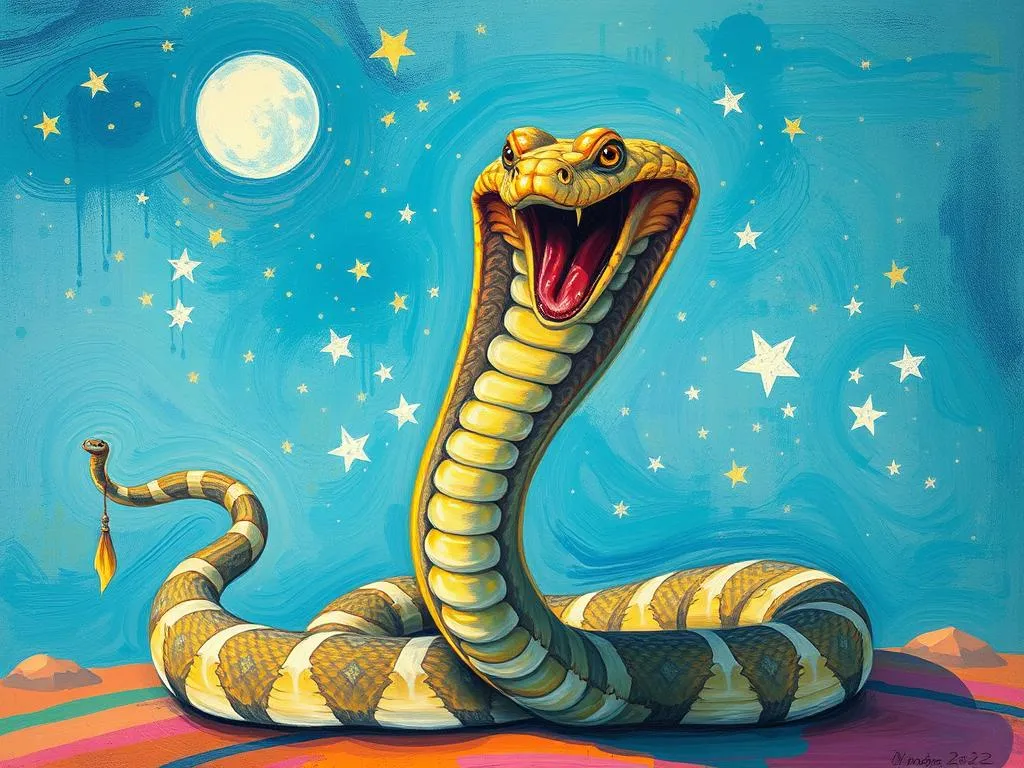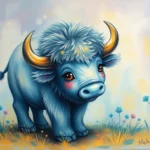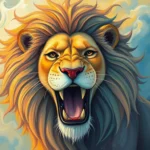
Dreams have long been a window into our subconscious, a realm where our hidden fears, desires, and emotions manifest in symbolic narratives. Among the myriad of symbols that can appear in our dreams, the Indian cobra stands out for its rich cultural significance and multifaceted interpretations. Dreaming of this majestic serpent can evoke a range of feelings and insights, making it a particularly intriguing subject for exploration. Whether it arises from personal experiences, cultural references, or instinctual fears, the Indian cobra serves as a powerful symbol that invites us to reflect on our inner worlds.
Symbolism and Meaning
The Indian cobra is not just a snake; it embodies layers of meaning that can vary depending on the context of the dream. In many cultures, snakes represent transformation, healing, and the shedding of old skin. In the context of the Indian cobra, which is often associated with spiritual energy and mysticism, it can symbolize kundalini energy—a primal force that resides at the base of the spine and is often depicted as a coiled serpent.
In dreams, the presence of the Indian cobra can indicate a call to awaken this latent energy, urging the dreamer to explore their potential for growth and transformation. However, this energy can also be intimidating. For some, the cobra may evoke feelings of fear or anxiety, representing hidden threats or unresolved issues. Thus, the dream can serve as a reminder to confront these inner demons rather than allowing them to fester in the shadows.
Additionally, the cobra’s striking appearance and behavior can symbolize power and assertiveness. If the dreamer perceives the snake as aggressive or threatening, it could reflect a situation in their waking life where they feel challenged or overwhelmed. Conversely, a calm or majestic cobra may signify the dreamer’s ability to harness their own power and confidence.
Understanding the specific nuances of the cobra’s symbolism often requires self-reflection. The dreamer’s feelings during the dream—whether they felt fear, awe, or curiosity—can deeply influence the interpretation. Therefore, the Indian cobra can serve as both a warning and a guide, urging the dreamer to navigate their emotions and experiences with awareness and intention.
Key Scenarios and Variations
The context in which the Indian cobra appears can significantly alter its interpretation. For instance, dreaming of an Indian cobra coiled peacefully may suggest that the dreamer is in a phase of introspection, indicating that they are ready to embrace change or transformation. This scenario invites the dreamer to consider what aspects of their life they are ready to shed, much like a snake shedding its skin.
In contrast, a dream where the cobra is aggressive or attacking can symbolize a confrontation with fear or anxiety. This scenario may reflect a waking life situation where the dreamer feels threatened or cornered. It serves as a potent reminder that avoidance may not be the solution; instead, facing these challenges head-on could lead to personal growth.
Another variation involves the cobra being handled or tamed by the dreamer. This scenario can signify mastery over one’s fears or the ability to navigate complex emotional landscapes. If the dreamer feels empowered while interacting with the cobra, it may indicate a newfound confidence or control in their waking life situations. However, if the cobra escapes or turns on the dreamer, it could represent a struggle to maintain control over one’s emotions or circumstances.
Additionally, the setting of the dream can also provide context. For example, dreaming of an Indian cobra in a natural environment may evoke themes of intuition and connection to nature, suggesting a need to reconnect with one’s instincts. Conversely, if the dream takes place in an urban setting, it might reflect feelings of disconnection or the challenges of navigating societal pressures.
Every scenario offers a unique lens through which to view the symbolism of the Indian cobra, allowing for a rich tapestry of interpretations. As dreamers explore these variations, they can gain deeper insights into their psychological and emotional states.
Real-Life Connections and Takeaways
To truly understand the significance of dreaming about an Indian cobra, it is essential to connect the dream’s imagery to real-life experiences. The cobra’s presence can serve as a reflection of personal challenges, transformations, or fears that the dreamer may be grappling with in their waking life.
For example, if you recently faced a significant life change—such as a new job, relationship, or personal crisis—consider how the cobra may symbolize your feelings about this transformation. Are you embracing it with confidence, or do you feel threatened by the unknown? Reflecting on these questions can provide clarity and a deeper understanding of your emotional landscape.
Moreover, the dream can highlight the need for self-awareness. Just as the cobra sheds its skin, the dreamer may be urged to shed old beliefs, habits, or relationships that no longer serve them. This process of letting go can be challenging, but it is often necessary for personal growth and renewal. Consider journaling about any aspects of your life that you feel ready to release, and how you can create space for new opportunities and experiences.
Lastly, the Indian cobra can serve as a reminder of the power of intuition. Snakes are often associated with deep instinctual knowledge, and dreaming of one may signal that it is time to trust your inner voice. If you find yourself facing a decision or dilemma, consider what your instincts are telling you. Taking time for quiet reflection or meditation can help you connect with your intuition and make more informed choices.
In conclusion, the Indian cobra is a profound symbol that invites dreamers to engage in self-reflection and exploration. By examining the various scenarios in which this serpent appears and considering the personal significance of the dream, individuals can gain valuable insights into their emotional and psychological states. The cobra may represent challenges, transformation, or empowerment, urging the dreamer to confront fears and embrace their own power. As you reflect on your dreams, remember that the journey of understanding is just as important as the destination, and trust in your ability to navigate the complexities of your inner world.







